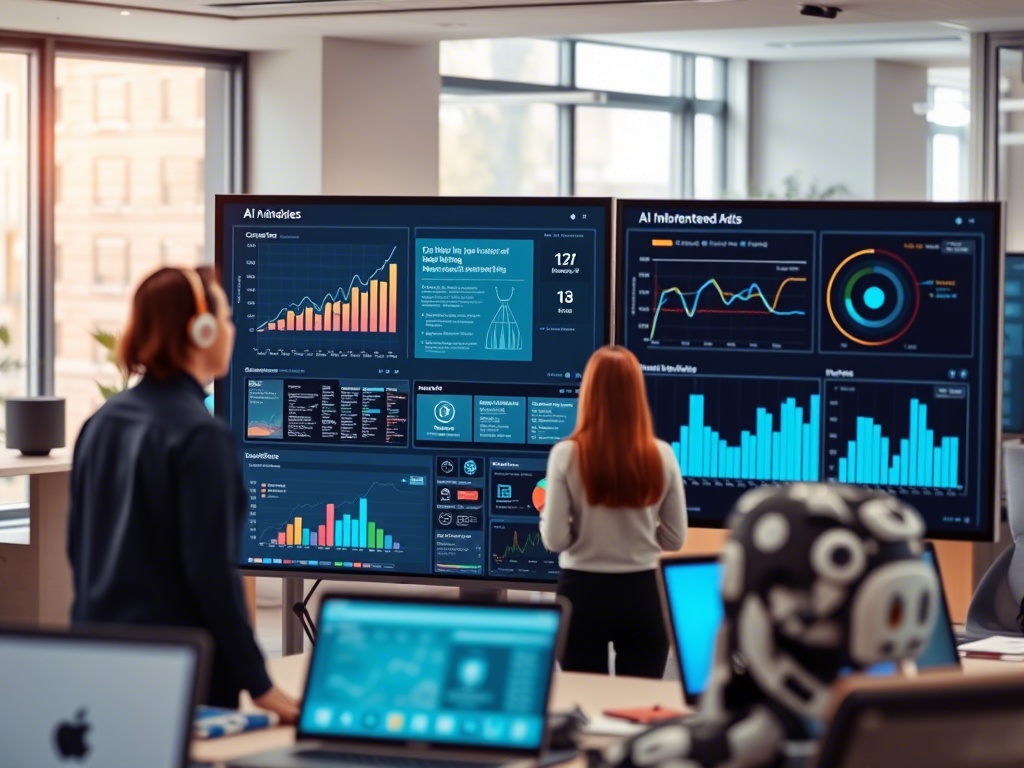Artificial intelligence is transforming digital marketing, enabling businesses to optimize their strategies, personalize customer experiences, and improve campaign performance. AI-driven tools are helping marketers analyze vast amounts of data, automate repetitive tasks, and predict consumer behavior with unparalleled accuracy.
From AI-powered chatbots and personalized recommendations to automated content creation and real-time analytics, AI is redefining how businesses engage with their audiences. This article explores the key ways AI is revolutionizing digital marketing and what marketers can expect in the future.
AI-Driven Personalization in Marketing
Consumers expect personalized experiences, and AI makes it possible to deliver them at scale. AI-driven personalization uses data analytics, machine learning, and behavioral insights to tailor marketing messages, recommendations, and customer interactions.
Personalized Customer Journeys
AI analyzes browsing history, past purchases, and user preferences to create highly personalized experiences. Companies like Amazon and Netflix leverage AI to suggest products and content tailored to individual users, increasing engagement and conversions.
Dynamic Content and Recommendations
AI-powered tools such as Dynamic Yield and Adobe Sensei analyze customer behavior in real time and adjust website content accordingly. This ensures that visitors see relevant offers, promotions, and product recommendations.
Email Personalization
AI enhances email marketing by segmenting audiences based on engagement patterns. Platforms like HubSpot and Mailchimp AI optimize subject lines, send times, and content to maximize open rates and click-through rates.
Predictive Analytics and Consumer Behavior
AI enables marketers to anticipate customer needs and trends before they happen. Predictive analytics uses machine learning algorithms to analyze past data and forecast future actions.
Understanding Consumer Intent
AI-powered tools like Google Analytics AI and Salesforce Einstein track user interactions across digital platforms, identifying patterns that indicate purchase intent. Businesses can use these insights to refine their marketing strategies.
Optimizing Marketing Campaigns
AI-driven platforms analyze historical campaign data to determine what works best. Persado and Phrasee generate AI-optimized ad copy that resonates with target audiences, improving conversion rates.
Automated Customer Segmentation
AI clusters customers into micro-segments based on demographics, behavior, and interests. This allows businesses to send highly targeted ads and offers, leading to better engagement and increased sales.
AI-Powered Content Creation and Curation
Creating high-quality content is time-consuming, but AI streamlines the process by generating, curating, and optimizing content for maximum impact.
AI-Generated Copy and Blog Content
AI writing tools like Jasper, Writesonic, and Copy.ai assist marketers by generating blog posts, product descriptions, and ad copy in seconds. While human creativity remains essential, AI speeds up content production.
AI-Powered Video and Image Creation
AI tools like Lumen5 and Synthesia help businesses create engaging video content without requiring extensive production resources. AI-generated visuals and animations make video marketing more accessible.

Content Curation and Optimization
AI helps marketers curate relevant content from across the web. BuzzSumo and Curata use AI to identify trending topics, optimize headlines, and suggest improvements for better audience engagement.
Chatbots and Virtual Assistants in Customer Engagement
AI-powered chatbots are transforming customer service by providing instant, personalized responses to customer inquiries.
AI Chatbots for Instant Support
Chatbots like Drift, ManyChat, and ChatGPT-powered assistants handle customer interactions, answer FAQs, and assist with transactions. This reduces wait times and enhances customer satisfaction.
AI-Powered Virtual Assistants
Virtual assistants like Google Assistant, Alexa, and Siri are integrating with digital marketing strategies, enabling voice search optimization and conversational AI-driven interactions.
Sentiment Analysis for Customer Insights
AI tools analyze customer conversations, reviews, and social media mentions to gauge sentiment. IBM Watson and Brandwatch help brands understand customer emotions and refine their messaging.
Programmatic Advertising and AI
AI is making digital advertising more efficient by automating ad buying, targeting, and placement.
Real-Time Bidding and AI-Optimized Ads
Programmatic advertising platforms like Google Ads, Meta Ads Manager, and The Trade Desk use AI to analyze user behavior and serve relevant ads in real time, maximizing ROI.
Audience Targeting and Predictive Bidding
AI-driven advertising tools optimize ad spend by predicting which users are most likely to convert. Adzooma and Skai use AI to refine targeting strategies and allocate budgets effectively.
Fraud Detection in Digital Ads
AI helps combat ad fraud by detecting invalid traffic and click fraud. Integral Ad Science (IAS) and Moat use machine learning to ensure ad impressions are genuine and valuable.
Enhancing Email Marketing with AI
Email marketing remains a powerful tool, and AI is making it smarter and more effective.
AI-Optimized Subject Lines and Copy
AI tools like Phrasee and Persado analyze past email performance and generate compelling subject lines and messages that increase engagement.
Predicting the Best Send Times
AI-driven email platforms determine the best times to send emails based on when users are most active. This increases open and conversion rates.
Automated A/B Testing
AI conducts A/B testing at scale, analyzing which variations of emails perform best and automatically adjusting future campaigns for better results.
AI in Social Media Marketing
AI is changing how businesses interact with audiences on social platforms.
AI-Powered Social Media Analytics
Tools like Sprout Social, Hootsuite, and Brandwatch analyze engagement metrics and suggest the best times to post, hashtags to use, and content strategies.
Automated Social Media Posting and Engagement
AI-powered schedulers like Buffer and Later automate post scheduling, analyze engagement data, and provide recommendations for optimizing content.
AI-Powered Influencer Marketing
AI tools identify the most effective influencers for brands. Platforms like Upfluence and Heepsy analyze influencer engagement, audience demographics, and past performance.
Challenges and Ethical Considerations
While AI provides numerous benefits, it also comes with challenges and ethical concerns.
Data Privacy and Compliance
AI collects vast amounts of user data, raising concerns about privacy. Marketers must comply with GDPR, CCPA, and other regulations to protect customer information.
Bias in AI Algorithms
AI models can reflect biases present in training data. Marketers should ensure that AI-driven decisions are fair and inclusive.
Balancing Automation and Human Creativity
While AI automates many tasks, human creativity and strategic thinking remain essential. Marketers should use AI as a tool to enhance—not replace—human expertise.
Future Outlook of AI in Digital Marketing
AI’s role in digital marketing will continue to evolve, with new advancements shaping the industry:
- Hyper-Personalization – AI will refine real-time personalization, delivering even more customized experiences.
- Voice and Visual Search Growth – AI will further enhance voice search optimization and visual search capabilities.
- AI-Generated Video Content – AI-powered video marketing will become more widespread, reducing production costs.
- AI-Driven Predictive Marketing – AI will improve forecasting models, helping businesses anticipate customer needs with greater accuracy.
Conclusion
Artificial intelligence is revolutionizing digital marketing by making strategies more data-driven, automated, and personalized. From predictive analytics and content creation to chatbots and programmatic advertising, AI is transforming how businesses connect with their audiences.
As AI technology advances, marketers must stay informed and embrace AI-powered tools to remain competitive. By integrating AI into their strategies, businesses can improve efficiency, enhance customer experiences, and drive better results.


